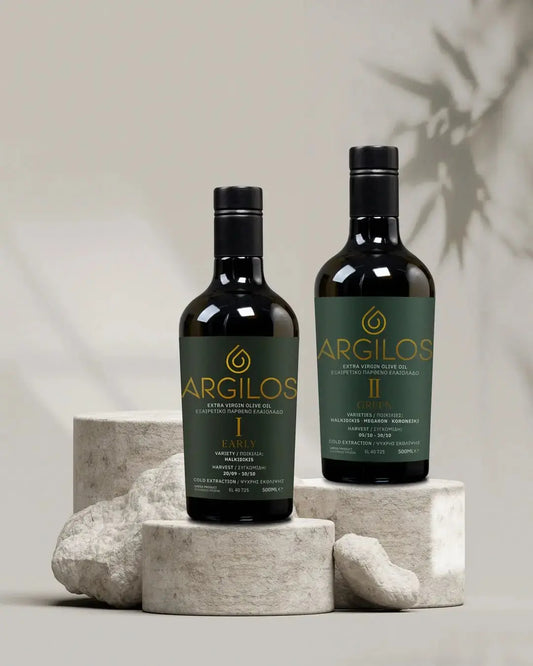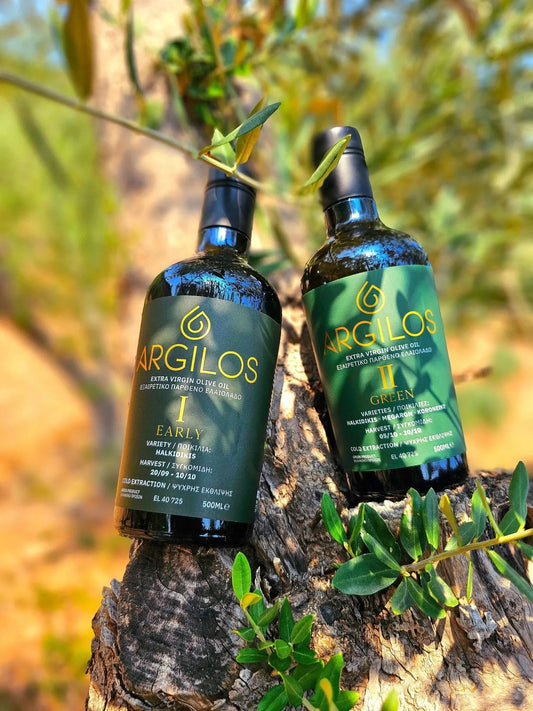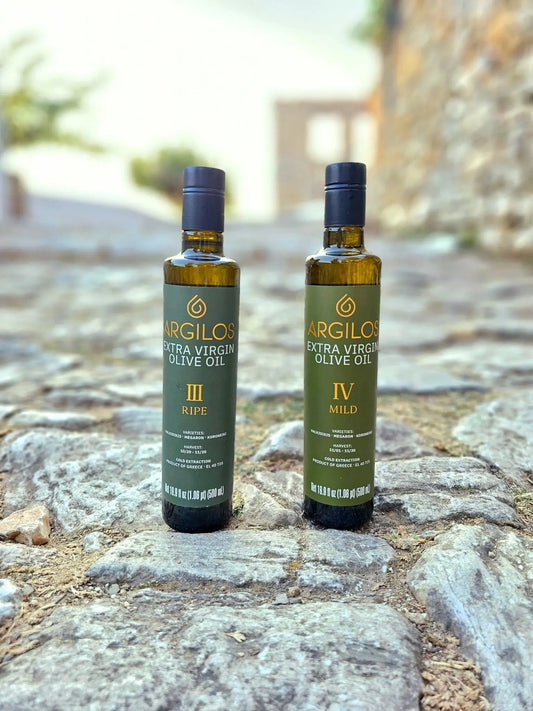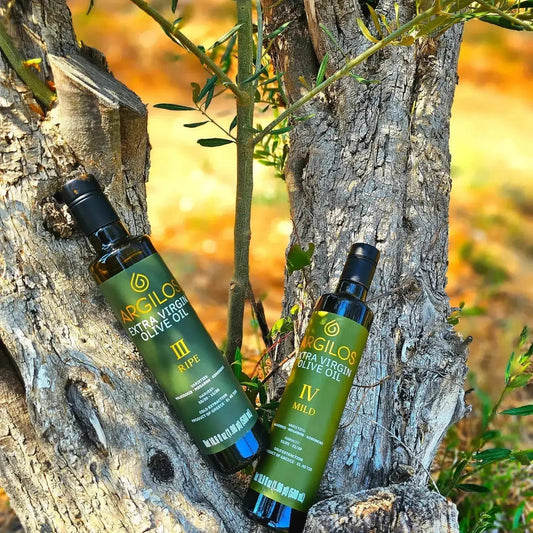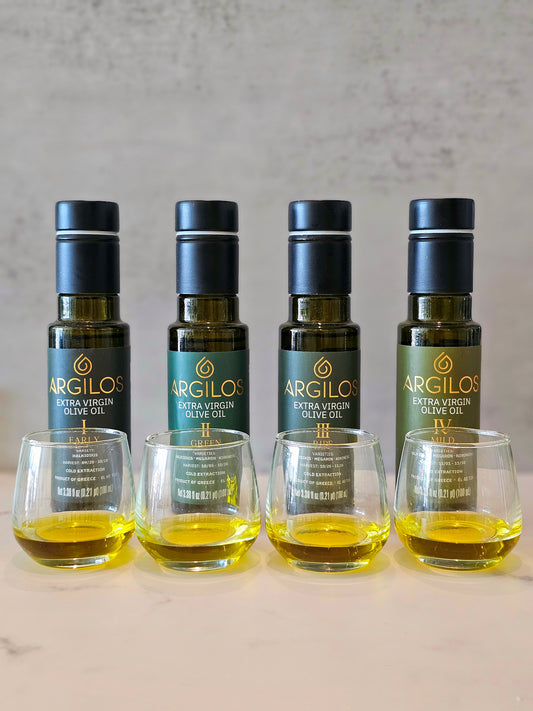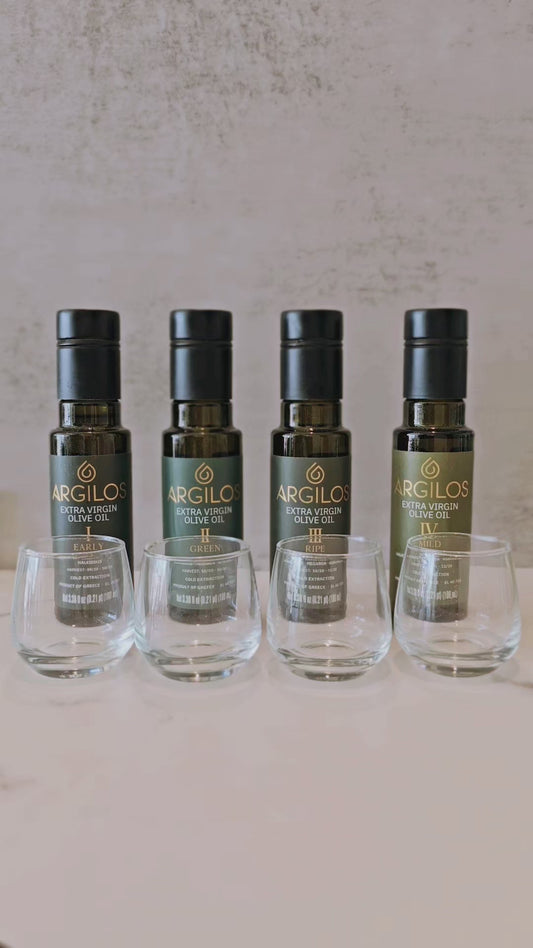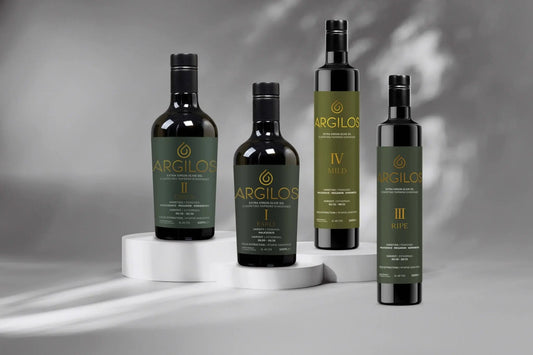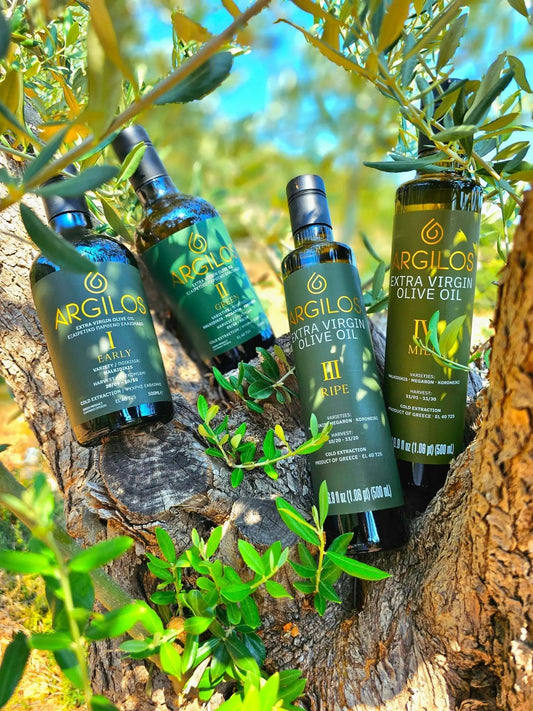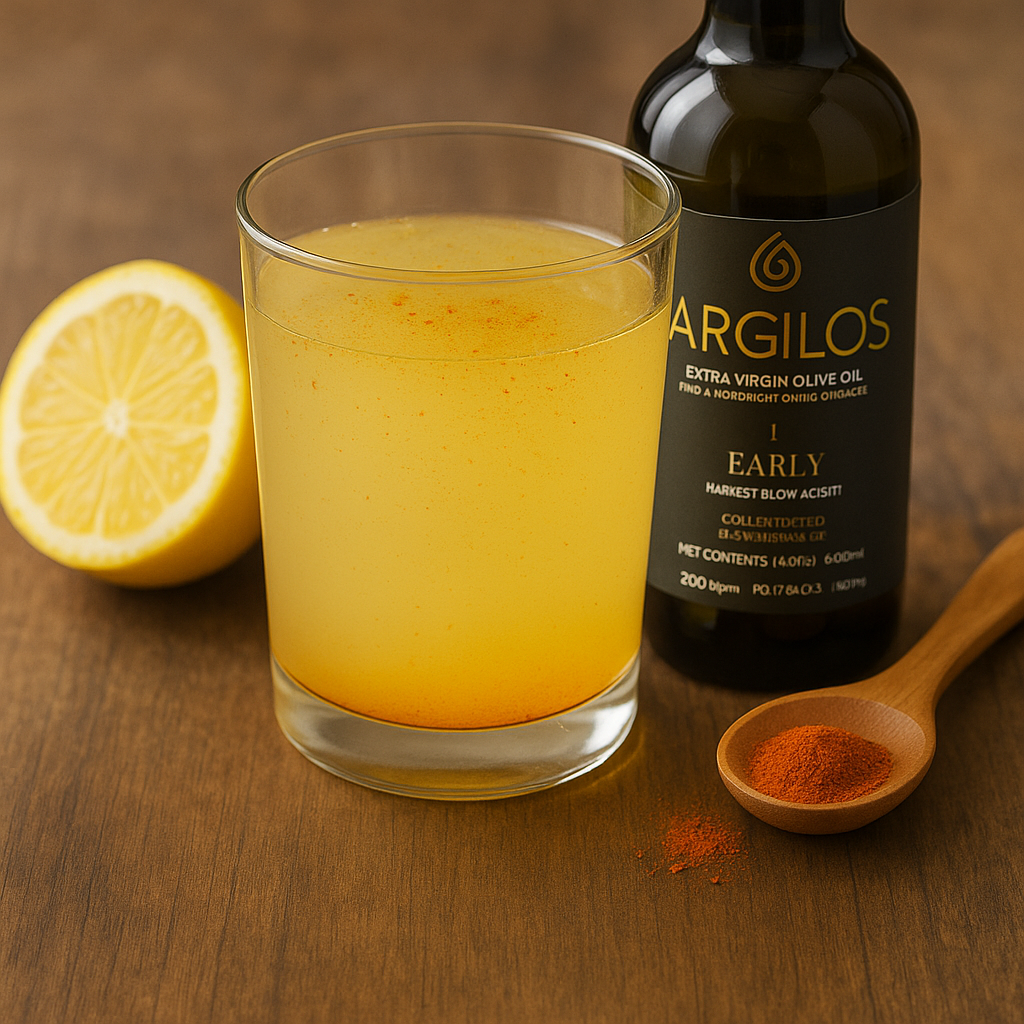
Olive Oil, Lemon Juice, and Cayenne Pepper: Benefits and Uses
Share
The combination of olive oil, lemon juice, and cayenne pepper has gained considerable attention in wellness circles as a natural health tonic. This trio is commonly used for various purposes including detoxification support, metabolism enhancement, and cardiovascular health promotion. Each ingredient brings unique nutritional properties that, when combined, may offer synergistic benefits for overall wellness.
While this combination has been embraced by many health enthusiasts, it's essential to approach these remedies with realistic expectations and a foundation in scientific evidence. Understanding the individual properties of each ingredient and their potential interactions can help you make informed decisions about incorporating this mixture into your health routine. As with any natural remedy, proper usage and awareness of potential side effects are crucial for safe and effective results.
Detailed Benefits of Each Ingredient
Olive Oil
High-quality olive oil serves as an excellent source of monounsaturated fats, particularly oleic acid, which comprises about 70% of its fatty acid content. These healthy fats support cardiovascular health by helping to reduce inflammation and improve cholesterol profiles. Olive oil is also rich in polyphenols, powerful antioxidants that protect cells from oxidative stress and may help reduce the risk of chronic diseases.

Argilos I - Premium Greek Extra Olive Oil from Nostosgoods
The anti-inflammatory properties of olive oil extend to digestive health, where it can help soothe the digestive tract and support nutrient absorption. Additionally, olive oil supports liver function by providing essential fatty acids that aid in the production of bile and the processing of fat-soluble vitamins. The vitamin E content in quality olive oil further enhances its antioxidant capacity, protecting cellular membranes throughout the body.
Lemon Juice
Fresh lemon juice is an exceptional source of vitamin C, providing approximately 30-40mg per ounce, which supports immune system function and collagen synthesis. The citric acid in lemons acts as a natural preservative and may help enhance the bioavailability of certain nutrients when consumed with other foods. Lemon juice contains flavonoids, particularly hesperidin and diosmin, which contribute to its antioxidant and anti-inflammatory properties.
The natural acidity of lemon juice can stimulate bile production in the liver, potentially supporting the body's natural detoxification processes. Some research suggests that the pectin fiber found in whole lemons may help with cholesterol management, though this benefit is reduced in juice form. The potassium content in lemon juice also supports proper muscle and nerve function throughout the body.
Cayenne Pepper
Cayenne pepper derives its heat and therapeutic properties from capsaicin, a compound that has been extensively studied for its health benefits. Capsaicin can temporarily boost metabolism through thermogenesis, potentially increasing calorie burn for several hours after consumption. This compound also supports circulation by promoting vasodilation, which may improve blood flow and help regulate blood pressure.
The digestive benefits of cayenne pepper include stimulation of digestive enzyme production and increased gastric motility, which can aid in nutrient absorption and reduce digestive discomfort. Capsaicin also demonstrates anti-inflammatory properties and may help with pain management when used consistently over time. Additionally, some studies suggest that regular consumption of capsaicin-containing foods may support appetite regulation.
Synergistic Benefits of the Combination
Detoxification and Liver Support
When combined, these three ingredients may work synergistically to support the liver's natural detoxification processes. The healthy fats in olive oil provide the building blocks for bile production, while lemon juice's citric acid can stimulate bile release from the gallbladder. Cayenne pepper's capsaicin may enhance circulation to the liver, potentially improving the organ's ability to process and eliminate toxins. This combination supports the body's existing detoxification pathways rather than forcing artificial cleansing.
Metabolism and Weight Management
The thermogenic properties of cayenne pepper, combined with the satiety-promoting effects of olive oil's healthy fats, may support healthy weight management goals. Lemon juice can help maintain stable blood sugar levels when consumed with meals, while the combination may help reduce cravings and promote feelings of fullness. The metabolism-boosting effects of capsaicin work alongside the sustained energy provided by olive oil to create a balanced approach to metabolic support.
Cardiovascular and Circulatory Health
This trio offers comprehensive cardiovascular support through multiple mechanisms. Olive oil's monounsaturated fats help improve cholesterol ratios, while the antioxidants from all three ingredients work together to reduce oxidative stress on blood vessels. Cayenne pepper's circulation-enhancing properties complement the anti-inflammatory effects of olive oil and the vitamin C content of lemon juice, creating a powerful combination for heart health.
Immune System Strengthening
The vitamin C in lemon juice works synergistically with the antioxidants in olive oil and the anti-inflammatory compounds in cayenne pepper to support immune function. This combination helps reduce systemic inflammation while providing essential nutrients that support the body's natural defense mechanisms. Regular consumption may help the body better respond to environmental stressors and seasonal challenges.
Digestive Health
Together, these ingredients create an environment that supports healthy digestion. Olive oil helps with the absorption of fat-soluble vitamins, lemon juice stimulates digestive enzyme production, and cayenne pepper promotes healthy gut motility. This combination may help reduce bloating, improve nutrient absorption, and support overall digestive comfort.
How to Use Olive Oil, Lemon Juice, and Cayenne Pepper for Maximum Benefits
Morning Detox Drink Recipe

Ingredients:
- 1 tablespoon high-quality extra virgin olive oil (consider premium Greek Olive Oil from Nostosgoods.com)
- Juice of half a fresh lemon (approximately 1-2 tablespoons)
- 1/8 teaspoon cayenne pepper (start with a pinch and gradually increase)
- 8 ounces warm water
Preparation Steps:
- Begin with warm (not hot) water in a glass
- Add fresh lemon juice and stir
- Slowly drizzle in the olive oil while stirring
- Add cayenne pepper starting with a small amount
- Mix thoroughly and consume on an empty stomach
- Wait 30 minutes before eating breakfast
Timing and Dosage: Start with this mixture 2-3 times per week and gradually increase to daily use if well-tolerated. Always begin with smaller amounts of cayenne pepper to assess your tolerance.
Culinary Uses
Incorporate this powerful trio into your daily meals through simple salad dressings and marinades. Combine 3 parts olive oil with 1 part lemon juice, add a pinch of cayenne pepper, and season with herbs like oregano or basil. This dressing works excellently on leafy greens, roasted vegetables, or as a marinade for proteins. The heat from cayenne pepper can be balanced with additional lemon juice or a touch of honey for those sensitive to spice.
Topical Uses for Skin Health
For external use, create a gentle skin treatment by mixing 1 tablespoon olive oil with a few drops of lemon juice (be cautious with sun exposure afterward). This combination can help moisturize dry skin and may provide antioxidant benefits when applied topically. Avoid using cayenne pepper in topical applications unless specifically formulated for skin use.
Safety, Precautions, and Potential Side Effects
Sensitivity and Dosage Considerations:
- Start with very small amounts of cayenne pepper to assess tolerance
- Some individuals may experience stomach irritation or heartburn
- Gradually increase quantities over time rather than starting with full doses
Lemon Juice Precautions:
- The acidity can erode tooth enamel with frequent exposure
- Rinse mouth with plain water after consumption
- Consider using a straw to minimize dental contact
- May exacerbate symptoms in those with acid reflux or GERD
Important Contraindications:
- Individuals with active stomach ulcers should avoid this combination
- Those with citrus allergies should eliminate lemon juice
- Pregnant or nursing women should consult healthcare providers before use
- People taking blood-thinning medications should discuss olive oil consumption with their doctor
- Those with gallbladder disease should avoid stimulating bile production
Always consult with healthcare providers before beginning any new health regimen, especially if you have existing medical conditions or take medications.
Expert Opinions and Scientific Insights
Current research supports many of the individual benefits attributed to olive oil, lemon juice, and cayenne pepper. Studies published in nutritional journals have documented olive oil's cardiovascular benefits and anti-inflammatory properties. Research on capsaicin demonstrates its potential for metabolic enhancement and pain management. Vitamin C research continues to support its role in immune function and antioxidant activity.
Nutrition experts generally agree that these ingredients can be beneficial as part of a balanced diet, though they emphasize that no single combination can replace a comprehensive approach to health. Registered dietitians often recommend focusing on overall dietary patterns rather than relying solely on specific ingredient combinations. Medical professionals stress the importance of individual assessment, as responses to these ingredients can vary significantly between people.
Summary: The Balanced View on Benefits and Risks
The combination of olive oil, lemon juice, and cayenne pepper offers several potential health benefits when used appropriately and as part of a balanced lifestyle. The synergistic effects of these ingredients may support detoxification, metabolism, cardiovascular health, and immune function. However, these benefits are best realized when the combination is integrated into an overall healthy diet and lifestyle rather than viewed as a standalone solution.
Moderation remains key, as excessive consumption of any ingredient can lead to adverse effects. Individual tolerance varies, making it essential to start slowly and monitor your body's response. While this natural combination can be a valuable addition to a wellness routine, it should complement, not replace, established healthy practices such as regular exercise, adequate sleep, and a varied, nutrient-rich diet.
Frequently Asked Questions (FAQs)
1. Can this mixture cure liver disease?
No, this mixture cannot cure liver disease or any serious medical condition. While these ingredients may support the liver's natural functions, they are not medical treatments. Anyone with liver disease should work exclusively with qualified healthcare providers for proper treatment.
2. Is the combination more effective than individual ingredients?
The combination may offer synergistic benefits that enhance the individual properties of each ingredient. The healthy fats in olive oil can improve the absorption of fat-soluble compounds, while the various bioactive compounds may work together to provide more comprehensive support than any single ingredient alone.
3. Who should avoid this mixture?
People with active stomach ulcers, severe acid reflux, citrus allergies, or gallbladder disease should avoid this combination. Pregnant women, nursing mothers, and individuals taking medications should consult healthcare providers before use. Those sensitive to spicy foods should start with minimal amounts of cayenne pepper.
4. How soon do benefits appear?
Some people may notice improved digestion or increased energy within a few days, while other benefits like cardiovascular support may take weeks or months of consistent use to become apparent. Individual responses vary significantly, and benefits are typically subtle rather than dramatic. Consistency and patience are important for experiencing potential long-term benefits.
References
- Schwingshackl, L., Christoph, M., & Hoffmann, G. (2022). Olive oil consumption and risk of cardiovascular disease and all-cause mortality: A meta-analysis of prospective cohort studies. PMC. https://pmc.ncbi.nlm.nih.gov/articles/PMC9623257/
- Guasch-Ferré, M., Liu, X., Malik, V. S., Sun, Q., Willett, W. C., Manson, J. E., Rexrode, K. M., Li, Y., Hu, F. B., & Bhupathiraju, S. N. (2020). Olive oil consumption and cardiovascular risk in U.S. adults. PMC. https://pmc.ncbi.nlm.nih.gov/articles/PMC7233327/
- Guasch-Ferré, M., Li, Y., Willett, W. C., Sun, Q., Sampson, L., Salas-Salvadó, J., Martínez-González, M. A., Stampfer, M. J., & Hu, F. B. (2022). Higher olive oil intake associated with lower risk of CVD mortality. American College of Cardiology. https://www.acc.org/About-ACC/Press-Releases/2022/01/10/18/46/Higher-Olive-Oil-Intake-Associated-with-Lower-Risk-of-CVD-Mortality
- Schwingshackl, L., & Hoffmann, G. (2014). Monounsaturated fatty acids, olive oil and health status: A systematic review and meta-analysis of cohort studies. Healthline. https://www.healthline.com/nutrition/11-proven-benefits-of-olive-oil
- Penniston, K. L., Nakada, S. Y., Holmes, R. P., & Assimos, D. G. (2008). Quantitative assessment of citric acid in lemon juice, lime juice, and commercially-available fruit juice products. PMC. https://pmc.ncbi.nlm.nih.gov/articles/PMC2637791/
- Zaccara, S., Panfili, G., Benvenuto, M., Padula, S., Corti, G., & Santarelli, G. (2016). Vitamin C contents of juice from different lemon varieties. ResearchGate. https://www.researchgate.net/figure/tamin-C-contents-of-juice-from-different-lemon-Citrus-limon-Burm-varieties_tbl4_24430305
- Aune, D., Giovannucci, E., Boffetta, P., Fadnes, L. T., Keum, N., Norat, T., Greenwood, D. C., Riboli, E., Vatten, L. J., & Tonstad, S. (2017). Fruit and vegetable intake and the risk of cardiovascular disease, total cancer and all-cause mortality. Medical News Today. https://www.medicalnewstoday.com/articles/325228
- McCarty, M. F., DiNicolantonio, J. J., & O'Keefe, J. H. (2015). Capsaicin may have important potential for promoting vascular and metabolic health. PMC. https://pmc.ncbi.nlm.nih.gov/articles/PMC4477151/
- Zheng, J., Zheng, S., Feng, Q., Zhang, Q., & Xiao, X. (2017). Dietary capsaicin and its anti-obesity potency: from mechanism to clinical implications. PMC. https://pmc.ncbi.nlm.nih.gov/articles/PMC5426284/
- Janssens, P. L., Hursel, R., Martens, E. A., & Westerterp-Plantenga, M. S. (2013). Acute effects of capsaicin on energy expenditure and fat oxidation in negative energy balance. Medical News Today. https://www.medicalnewstoday.com/articles/267248
- Leung, F. W. (2008). Capsaicin-sensitive intestinal mucosal afferent mechanism and body fat distribution. WebMD. https://www.webmd.com/diet/health-benefits-cayenne-pepper
- Abdel-Salam, O. M., Shaffie, N., Omara, E. A., & Yassen, N. N. (2018). Citric acid an antioxidant in liver. ScienceDirect. https://www.sciencedirect.com/science/article/abs/pii/B9780128039519000161
- Abdel-Salam, O. M., Youness, E. R., Mohammed, N. A., Yassen, N. N., Khadrawy, Y. A., & Omara, E. A. (2014). Citric acid effects on brain and liver oxidative stress in lipopolysaccharide-treated mice. PMC. https://www.ncbi.nlm.nih.gov/pmc/articles/PMC4026104/
- Pahan, K. (2006). Lipid-lowering drugs. Experience Life. https://experiencelife.lifetime.life/article/the-everyday-liver-detox/
- Ferira, A. J., & Hyman, M. (2024). Liver cleanse: How to detox your liver naturally. Mindbodygreen. https://www.mindbodygreen.com/articles/cleanse-your-liver-naturally
- Russell, R. M., & Suter, P. M. (2012). Vitamin and mineral deficiency in the elderly. Johns Hopkins Medicine. https://www.hopkinsmedicine.org/health/wellness-and-prevention/detoxing-your-liver-fact-versus-fiction
- Holst, B., & Williamson, G. (2008). Nutrients and phytochemicals: from bioavailability to bioefficacy beyond antioxidants. PMC. https://pmc.ncbi.nlm.nih.gov/articles/PMC5105045/
- Chow, J., Lee, S. M., Shen, Y., Khosravi, A., & Mazmanian, S. K. (2010). Host-bacterial symbiosis in health and disease. Rolling Out. https://rollingout.com/2025/05/09/liver-health-natural-detoxification/
Disclaimer: This article is for educational purposes only and should not replace professional medical advice. The combination of olive oil, lemon juice, and cayenne pepper has not been evaluated by the FDA for treating, curing, or preventing any disease. Individual results may vary, and it's important to consult with healthcare providers before making significant dietary changes, especially if you have existing health conditions or take medications.

